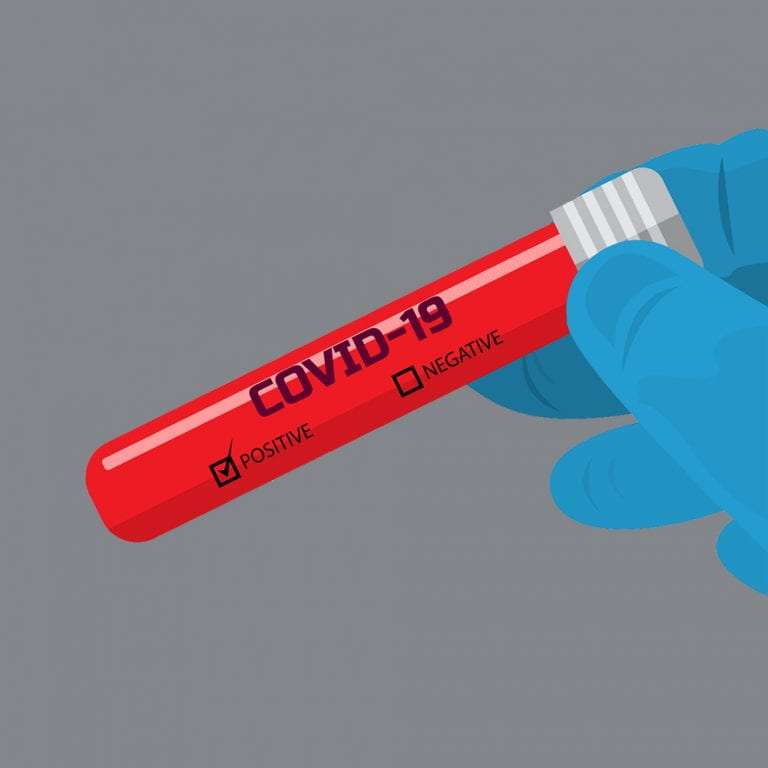 At this writing in Mid-December 2020, community spread of COVID-19 is gaining momentum in rural areas of New York. As employers, farmers have certain responsibilities when one of their workforce tests positive for COVID-19. Because farmworkers are essential workers, there is sometimes confusion about what quarantine means for those who have come in close contact with the person who has received a positive diagnosis. In this article, you will find resources to help you sort out your responsibilities as an employer and know what steps to take should someone associated with your business test positive.
At this writing in Mid-December 2020, community spread of COVID-19 is gaining momentum in rural areas of New York. As employers, farmers have certain responsibilities when one of their workforce tests positive for COVID-19. Because farmworkers are essential workers, there is sometimes confusion about what quarantine means for those who have come in close contact with the person who has received a positive diagnosis. In this article, you will find resources to help you sort out your responsibilities as an employer and know what steps to take should someone associated with your business test positive.
Once someone tests positive, the local health department (LHD) will work closely with that individual to isolate and trace contacts who may have been exposed during the incubation period for COVID-19. Businesses will be asked to assist the LHD with identifying close contacts of any worker who tests positive. This is where your Forward NY Safety Plan will come in handy. All businesses including farms are required to have one. The LHD will likely ask to review your plan to help you strengthen the processes you have in place to help stop the spread of COVID-19. Now is a good time to review the plan, update it if needed and be certain you are doing a good job of tracking contacts at your place of business. For assistance, your first and most knowledgeable resource is your LHD. Please reach out to them. They are striving to connect with people who test positive and complete contact tracing within forty-eight hours of the report of a positive test.
Essential workers on farms may continue to work on farms during quarantine. Guidance from New York State Department of Agriculture and Markets (NYS DAM) addresses quarantine for essential workers who have been exposed to someone who has tested positive for COVID, as well as isolation and requirements for going back to work for people with positive tests. The Centers for Disease Control and Prevention (CDC) provides information on quarantine and explains the difference between that and isolation: https://www.cdc.gov/coronavirus/2019-ncov/if-you-are-sick/quarantine.html.
The United States Department of Labor details the responsibilities of employers under the Families First Coronavirus Response Act (FFCRA) to provide paid leave for employees affected by COVID-19 or who are caring for family members affected. Employers with fewer than 500 employees are able to receive a tax credit for paid leave provided under FFCRA. The tax credit reimburses the employer for qualified sick or family leave wages, qualified health plan expenses and Medicare tax credit. To claim the credits, employer can (1)assess federal employment taxes that would otherwise be deposited, (2)claim the tax credit on their Form 943, Employers’ Annual Federal Tax Return for Agricultural Employees or (3) request an advance of the credits not covered by assessing federal employment tax deposit by filing Form 7200 Advance Payment of Employer Credit Due to COVID-19.
Local health officials confirm that most of the spread of COVID-19 in our rural communities can be traced back to small gatherings of people without adequate precautionary measures. Now is a good time to remind your workforce about the importance of wearing a face covering, hand washing or sanitizing, social distancing and staying home to stay healthy. Many people are craving social interaction after many months of limiting our interactions to prevent the spread of COVID-19. With cases on the rise and our health care system once again being tested for its capacity to take care of those seriously ill with COVID-19, everyone must continue to adhere to prevention practices until vaccinations and warmer seasons have slowed the spread of the virus.
In summary, if someone from your farm tests positive for COVID-19, follow your Forward NY Safety Plan, and be sure you are doing a good job of tracking contacts. Work with your LHD to quarantine or isolate individuals as required. Understand when your essential workers may still be able to work during quarantine. Be aware of your employees’ rights and your employer responsibilities under FFCRA for paid time off if employees are sick with COVID-19 or caring for a family member who is. Know you can apply for tax credits for qualified wages, health care plan expenses and Medicare tax paid under FFCRA. And most importantly, continue to do the very best you can to provide a safe and healthy work environment where people have adequate time for rest, so they are ready and able to come to work as needed.
Source: Cornell University









